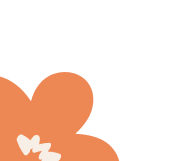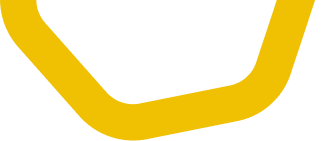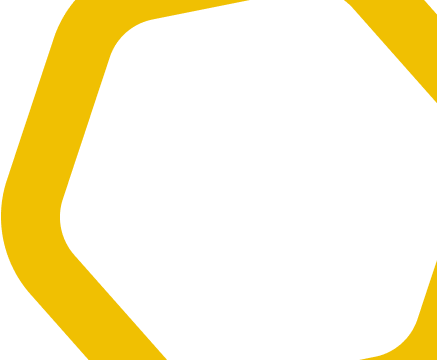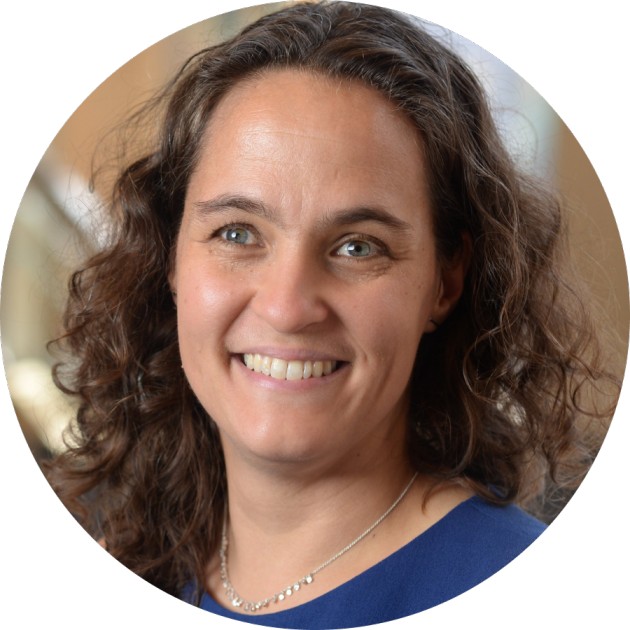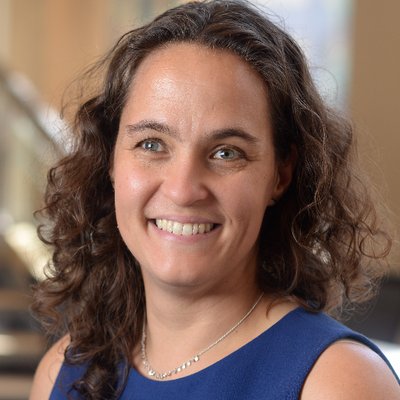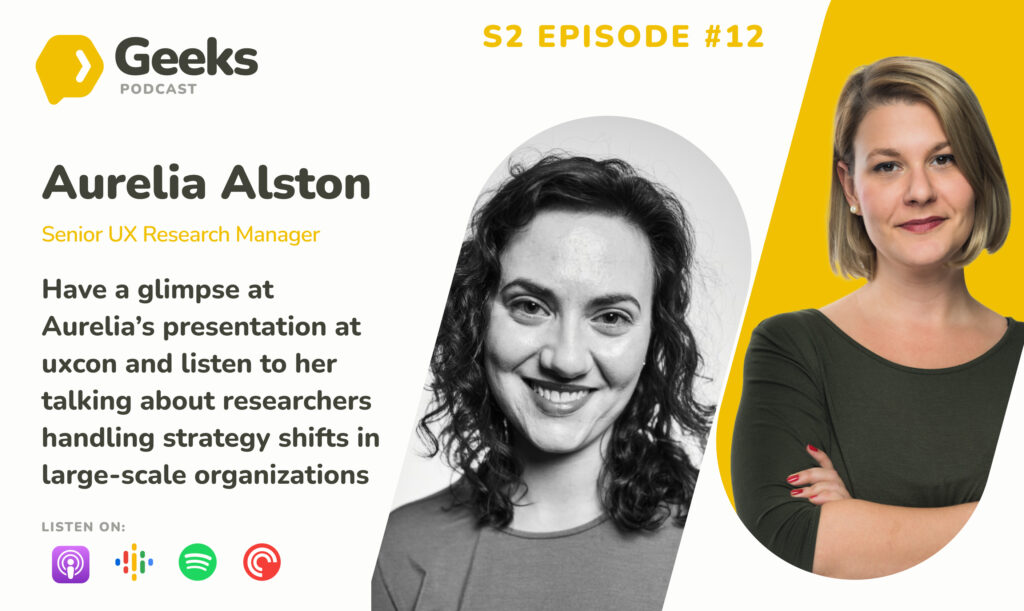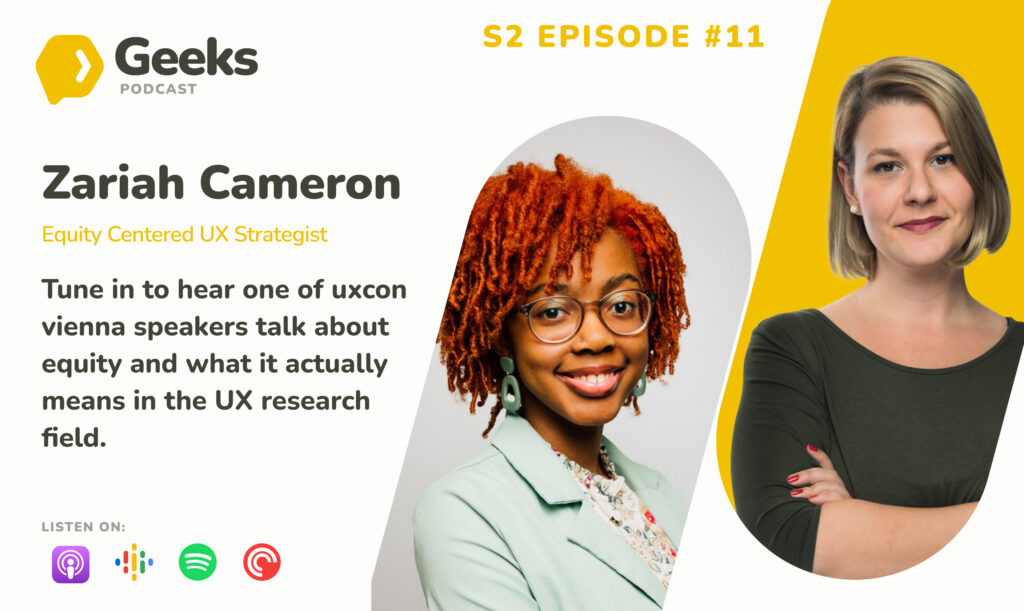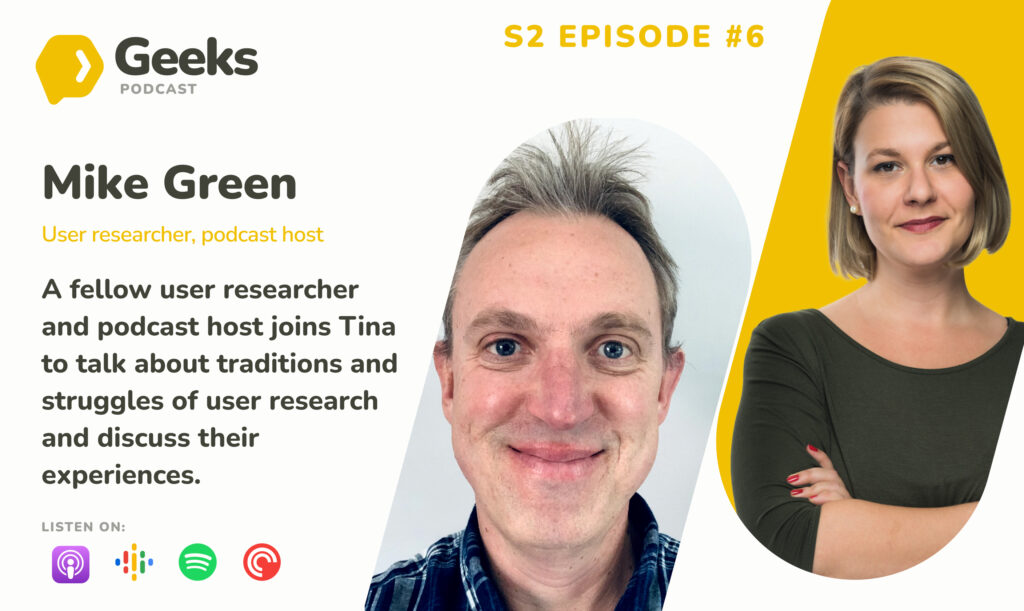Episode highlights
- 00:01:38 Theresa’s Journey to Product Discovery and Research
- 00:04:40 The Shift to Product Discovery Coaching
- 00:09:29 The Upset Research Community
- 00:18:44 Debunking the Term ‘Research Democratization’
- 00:25:28 The Future of Research and Continuous Discovery
About our guest Teresa Torres
Teresa Torres, based in Bend, Oregon, USA, is a respected author, speaker, and coach in product management. She emphasizes customer-centricity, infusing customer input into daily product decisions. With extensive experience coaching teams of all sizes across diverse industries, including both startups and global enterprises, she’s impacted over 12,000 product professionals. Teresa is also the author of “Continuous Discovery Habits” and a key figure at the Product Talk Academy.
Podcast transcript
[00:00:00] Tina Ličková:
Welcome to UX Research Geeks, where we geek out with researchers from all around the world on topics they are passionate about. I’m your host Tina Ličková, a researcher and a strategist, and this podcast is brought to you by UXtweak, an all-in-one UX research tool.
This is the fourth episode of the third season of UXR Geeks, and you’re listening to me talking to Teresa Torres. I don’t know how much I have to introduce Teresa, but she is a Guru Product Management Coach who came up with the Continuous Discovery Habits, teaching on it, guiding companies on how to actually discover customer experiences and then plan or develop new features or make products better out of it.
And in this episode, we were discussing how she sees the researchers work in Continuous Discovery Framework. Why are some people maybe a little bit mad about her and why we both think that it’s not actually on point. So a little bit of a spicy episode that you can definitely enjoy.
You’re a product person, or I have the framing, Teresa Torres is the product person, and how did you come to the idea of okay, I’m going to preach, for me, it’s research. And to coach people on research, where did that come from?
[00:01:33] Teresa Torres: Yeah, I actually have a human computer interaction back. I started out as a designer.
[00:01:37] Tina Ličková: Ah, okay.
[00:01:38] Teresa Torres: And moved into product. And I really was introduced to human centered design, like as a college student. And I entered the business world thinking. This is how the world works. People care about the customer and they’re going to do research. Wow. Was I surprised? That was not the case. And it really just made sense to me.
Like I was introduced to, I would say probably more of the usability testing side research as an undergraduate. But I was blown away by how many companies weren’t even doing that. Now granted, this was the late nineties where we used to spend 30,000 $ to rent a two day facility with a two way mirror to run our usability tests.
There’s a reason why companies didn’t do it very often, but I always worked at really early stage startups. There was no budget for that. So I just started to look at it like, how do we do this? Like, how do I get some input from customers, even if I can’t do it in the formal big research process way.
So I think this has just always been a part of. The way that I’ve looked at building products really influenced my undergraduate program. And then another big turning point for me was when the lean startup book came out in 2011. I really felt like, wow, somebody is putting in a book what I’m already doing.
And I know a lot of people felt that way, right? Oh, Eric Reese has done a really good job of kind of codifying this testing mindset and this, like, how do we know for right or not? And then the interviewing piece. To be honest, I can’t really remember. Oh, I remember a lot of the startups that I started working at, like eventually I got to the point where I realized even if you test your solutions, you can still build the wrong stuff.
Like usability is not enough. As I moved into product, I started to get more interested in the business side of things and viability. If you don’t nail the customer needs side of it, your product is not going to be viable because there’s just not going to be enough interest. And then I started to get into the interviewing side of things.
Like an academic nerd. I don’t just dive into things and be like, oh, I’ll just try this. So I started to geek out qualitative research. I did qualitative research as part of my master’s and I really look at my role as like, how do we look at what’s the right way to do things if we had all the time in the world and then how do we adapt that for the pace of industry?
And so that’s like the bridge I like to play is how do I make this stuff more sustainable? Because we don’t have time to do perfect research.
[00:03:59] Tina Ličková: And this is really nice what you just said, like how do we make it if we have all the time in the world or the perfect conditions? And this is not. Basically, it’s never happening.
I see it also in the organization where I’m working right now. You showed a lot of people the product. That’s why the framing in my works is like that. I, now I remember, yes, you are coming from the design corner. that how to do research and the love for research. And they start to do it and they fall in love as well, because it’s just the communication of it for customers.
But how did you start to sell it to product managers and product people and further on into companies?
[00:04:40] Teresa Torres: I think from a career standpoint, I followed a pretty typical path in that, like I bounced between, I know a lot of people now are bouncing between product and design rules. I don’t think that unique anymore, like at the time it was.
And I got to the point where I was an executive in early stage startups and ran product and design teams, and honestly, I didn’t love that job. I just, I don’t, it’s really, unless you have a really strong CEO, executive teams aren’t well aligned, it creates so much chaos in the company. To me, it was the boring part of the job.
Like I don’t really love the internal politics, how do we get everybody going in the same direction? What I loved was developing a team and managing product managers and designers and working with engineers. And so after I thought about my fourth early stage startup, I just saw it was burnt out and I knew that if I kept on that path, it would not end well, I just, it was.
I put myself in a situation where I was advocating for something that those founders were never going to be interested in. And so it wasn’t very sustainable. My way of doing things, they had their way of doing things, and they often clashed. And I, probably in 2011, sometime between 2011 and 2013 I deliberately made the decision that I wanted to coach instead of work as a full time practitioner.
And at that time, there were no coaches. Product coaching was not a thing. In fact, I’m pretty sure I’m the first person to use the title product discovery coach, and I don’t even know if there were other product coaches at that time. It wasn’t something that I could just hang a shingle and people were going to hire me, right?
So I did two things. I was getting incoming requests for consulting projects. Actually, really what I was getting was I was getting incoming requests to be hired. And part of that is because one of my most recent jobs at that time is I’d been the CEO of a startup, I resigned for a variety of reasons at that company, and I had a couple board members that really looked out for me and helped with incoming opportunities.
The challenge is I did not… Want a job. So what I did was I took those calls and I turned it into kind of project consulting work most of the time it was research They were hiring me to do their interviews for them and to come back with here’s a research report And I did not love that and it’s because I really felt like they needed to build the capacity to do that themselves Rather than hiring an external person to do it And this is a tension I’ve felt my whole career.
I have friends that were in the same undergraduate program as me that went through the classic design agency route and they did project based design work. And I always worked internal. And I saw a major conflict between those two paths. I’m not saying design agencies can’t do good work or research firms can’t do good work for companies.
But I just truly believed that if a company is a product company, they have to build these capacities internally themselves. And so what I started doing was I started, when somebody would engage me for a research project, I would say, look, I will do this research for you, but only if you send your team along with me, so that I can teach them how to do it themselves.
That was an easy sale. They didn’t know they needed it, but it was an easy sale. And then the other thing that I started doing back in 2011 is I started blogging and I very deliberately started blogging with my audience being product leaders and with the goal of exposing the gap of hey, your teams aren’t doing this and here’s why it’s a problem.
And that obviously took some time to build an audience and to build that foundation, but my very first big coaching client was Prezi and I got that gig. My personal network, my roommate, actually worked at Prezi at the time. My very second big coaching client was a career builder. Hope Gurion was the chief product officer there.
And she found me through my blog. She actually sent me like a two sentence email that said, you write about things. My team needs help, will you coach us? She actually used the coaching term and that’s what told me, Oh, my positioning worked, like I very deliberately went after trying to position myself as a coach.
And then from there, it just picked up.
[00:08:52] Tina Ličková: There are two kind of entries for me there. One is the researcher as a freelancer and you said you didn’t love it. And this is what I am also contemplating because I’m going for freelance from June and I’m like, yeah, I want to do the part where I research because I can geek out and learn about stuff and everything.
[00:09:09] Teresa Torres: Yeah.
[00:09:10] Tina Ličková: There is this strong need of teaching it to people and showing them how it’s. done. What are your recommendations on how to, maybe not even going straight away to the coaching, but how to marry these two approaches?
[00:09:29] Teresa Torres: First of all, I do think there is a place for big project based research. I think companies need project based research, and I think that can be done by an outside firm.
I think what I, Was really being asked to do. And what I was focused on was research that was more core to the iterative nature of building the product. So it was like, we’re building this solution and we need to understand the needs around this solution. I think that research happens at a really different cadence than this, like longer horizon research.
And that’s why this is what got me into the product team should be doing the research. And I will share this is the elephant in the room of me being on it. Research focus podcast. I know a lot of the research community is pretty upset with me and they think that I don’t value researchers and that I don’t think we need researchers.
So I’ll just say that’s not true. I do value researchers. I think we do need researchers. I think what’s driving the discovery momentum is that the reality is most companies don’t have researchers. And even when companies do have researchers, they don’t have enough of them. So how do we close the gap? How do we get more people enabled able to do something?
And I would say even in an ideal world, let’s say that you have a user researcher embedded on every single product team at your company. And you have a centralized user research team focused on longer horizon research. So you’re like in the ideal world. You’re really well resourced on the research side.
There’s still going to be days where your product manager has a simple question they want to get a fast answer to, or your designer wants to get quick feedback on their design. And what I’m trying to break is this idea that researchers are the only people equipped to talk to customers and they’re the only people equipped to get fast answers.
And I don’t mean that to devalue research. I think the entire organization should have exposure to customers. And I understand there’s a little bit of a threat here. If everybody in the organization is talking to customers, do you need researchers? I’m gonna say absolutely. Because not everybody in the organization is an expert at research.
So I think there is this spectrum where we will always need good research. And even a lot of that research can happen external through a firm. So if you want to do freelance and do freelance research, I think there’s a lot of room for that. But then as you move down the spectrum, and usually that spectrum is time based like organizations might invest a month or two to do some project based research.
A product team does not have a month or two to get an answer to a question, right? So as that cadence gets quicker, we need to enable more people in the organization to go get a fast answer.
[00:12:10] Tina Ličková: It’s super interesting that you’re saying that some people criticize you because I actually can see how this, how your approach, how your framework is helping researchers.
I’m seeing it in the organization where I work right now, because it’s, yes, everybody needs to speak with customers and everybody needs to see the customer because you just can’t really transfer the experience and you have to invite people and if they are like owning the interview, then I see more, and this is maybe the question also, like, where do you see the role of a researcher then internally?
Because coming or connecting it to your framework, and I just don’t want to be right now Oh, I’m trying to compliment you or anything, but I see there is connection of, yeah, as a researcher, I will, I have a chance to born more into strategic, big, long term projects and going into a lot of psychology that I can coach or navigate, guide people.
To do the cadence research, is that, do I understand right, or would you say, okay, no, Tina, you didn’t get the idea.
[00:13:18] Teresa Torres: I think there’re several roles a researcher can play in an organization depending on their interests. And I think what’s really important is that we put researchers in the role they want to do.
So let’s look at a couple roles and then we can talk about how to mix and match these. So I think the first thing is this idea of a centralized user research team that does project based research, I don’t think is going away. And I don’t think it should go away. I think a business will always have longer horizon questions that researchers should tackle.
Where is our industry going over the next five to ten years? What are the external trends that could disrupt our business? Pricing research, right? No product team has the time to do proper pricing research. I think there’s lots and lots of questions, even generational things, like we see big generational trends where generation, I don’t even know what generation we’re on, where the kids are thinking about money and politics and career very differently than they do now, than older generations have.
So who’s doing that research? Who’s working to understand that in your organization and how your product and your business model and your pricing strategy and your marketing strategy. needs to change. That’s, user researchers should be doing that work. So that’s one thing. I don’t think the heart of user research is really changing.
Now, user researchers for a long time have supported product discovery work. And if an organization is willing to invest in researchers at the level where they’re embedded on all the product teams, I think that’s amazing. I think that’s an ideal situation because now when a product team is interviewing week over week or they’re running usability tests.
or assumption tests week over week, they have a researcher there to help improve their methods. Now, where I see this going wrong is the researcher doesn’t adapt their methods to the cadence of the product team. They want to do a three or four week store, study for a teeny tiny question. That doesn’t work, right?
We need to get good enough data in two days, not great data in three weeks. So, I do love having the researcher embedded because they do have good research skills and they can improve the quality of that research, but they have to adapt to the timeline. We can’t just slow our product teams down to get better research because that will kill the organization’s appetite for research.
If the cost of integrating researchers is that we just slowed our cadence down by 5x, guess what? All those researchers are going to lose their jobs. And then I think the third role that researchers can play is just as enablers. I know a lot of researchers enjoy teaching and coaching. And they can, and it’s almost like a research shop’s rule where they’re enabling research across all the product teams.
Now, the mistake I see companies make is they take a researcher who wants to do that long horizon research and make them a research enabler. And they don’t want to do that work, they’re not teachers, they’re researchers. But we do have researchers who are teachers who do want to do that enabled network, and I think a mix of all three of those strategies can work really well.
[00:16:11] Tina Ličková: You were mentioning research ops and this is where I would like to also have your opinion like how can research ops help with continuous discovery? And researchers can help to go for this fast, let’s call it quick and dirty, although it’s not this type of research.
[00:16:27] Teresa Torres: There’s a lot of ways we can help enable continuous discovery in an organization.
And maybe this is the role research ops plays. Again, I don’t like to say this person always does that because it’s going to look different in every organization. But what are the, like the things that I would think about if my job was to look at how do we create a steady flow of people to be interviewed by all of our teams.
I would look at how I get the right tools in place so that my teams have access to an unmoderated testing platform. When we have access to unmoderated testing platforms, we can design on one day and get feedback by the end of the day. And then do an iteration on day two. That’s really amazing.
So we get fast cycles of design plus feedback. So I would be looking at unmoderated tools, like unmoderated testing platforms. I’d be looking at how I make sure my teams know how to use those platforms well, and know what types of questions can be answered on unmoderated platforms and what types of questions need to be done in person.
I would be looking at other tools, like one question survey tools, good data analytics tools. to make sure that my teams have access to all of that. I would be looking at research repository tools and looking at how we collect and tag insights to make them searchable. I’d be looking at how I make sure my teams are sharing what they’re learning across the organization.
I would look at who’s doing the synthesis work across the teams. If I’m on a product team, I’m focused on my outcome and all my research is helping me drive my outcome. I could care less about what a team four steps away from me is doing, right? I might be looking at my adjacent teams and what they’re doing, but if you’re four steps away, I don’t have time to worry about what you’re doing.
Somebody in the organization needs to be looking across all of these teams. What are we learning? What are the arcs? How are we synthesizing that? How are we sharing across each other? Whereas I don’t think our product teams can do that. So I think that’s a great role for research ops as well. And I think that’s also a great place to find inspiration for those longer horizon research projects.
Oh, we’ve got six teams that are stumbling across. really similar insights, maybe that’s an indicator that we should get some more reliable research here.
[00:18:44] Tina Ličková: What I’ve been super interested in for the last two years, or maybe even longer, is throwing back and forth the term of research democratization. Do you consider Continuous Discovery Framework to be a way of democratizing research in organizations?
[00:18:59] Teresa Torres: I don’t like either of these terms, so first of all, I don’t even like the research term.
And again, some people take this to mean I don’t value researchers, that is not what I mean. I’ll use it, let’s set research aside for a minute. I’m gonna talk about a language change I made and why. I used to talk about product experiments. I no longer do that. I now talk about assumption tests. Why did I make that change?
When we hear the word experiment, we immediately think of a hypothesis. We immediately jump into this science-y realm and we start to get questions like, how valid is that test? Do we have a representative sample? And suddenly we’re holding our product teams to a much higher standard than any other team in business.
Think about how many business decisions get made with no input from anybody outside the building. Like, when your finance team decides to allocate money from this group to this group, nobody says, did you run a double blind controlled randomized study? Nobody does that. By talking about product experiments, we just set our standard for ourselves, but nobody else in the organization has to meet.
The other challenge I have with this is there are people that are science minded in our organizations, and they tend to be uncomfortable with This is not an experiment, because it’s not an experiment. What, experiments take months to run, we don’t have months to run experiments. So I shifted from experiment language to assumption testing language.
Our goal is to test our assumptions. I feel the same way about the word research. For a lot of us, even when you’re working on those two or three month long research projects, we’re not doing research in the academic sense. ever in industry. It’s maybe if you’re Google and you can fund a two year HR project where you really are doing research that you might publish in the academic journal, okay, you’re doing research at the level that word is often associated with.
But if you’re doing a two month conjoint analysis, does that really match that word or what most people associate with that word? Not really. And again, this isn’t a dig on research. It’s the average person’s perception of what that word means. And so when we use that word. We’re opening the door for people to nitpick our work and say here’s why your research, which assumes this like really strong Reliability and validity.
Here’s why I can nitpick your work, and I feel like we’re opening the door to Criticism and rightful criticism because we’re not doing research And so that’s the first thing is I don’t love that word and then now we’re gonna pair it with democratization
[00:21:32] Tina Ličková: What is the synonym for you for research? What would you call it?
[00:21:37] Teresa Torres: I don’t know that I have one. I don’t have a fix for that one.
[00:21:41] Tina Ličková: In many points I was agreeing with you, but then I was like, but how, because I was thinking like, I don’t want to call it feedback because there is a difference for me, customer feedback and research.
[00:21:52] Teresa Torres: We are doing research. I’m not suggesting researchers aren’t doing real research.
What I’m suggesting is that too many people have a meaning of that word that doesn’t reflect the work that researchers are doing. That’s fine. I don’t know if we have to solve that problem. But now when we pair that word with democratization. What it sounds like to me is we’re turning everybody in the organization into a researcher.
I don’t think that’s what we’re doing, and I don’t think that’s what we should do. I think we should let our researchers do research. And everybody else in the organization needs exposure to customers. They need to be able to get fast answers to their quick questions whenever they want and whenever they need to.
What I don’t want is for researchers to be gatekeepers. Where researchers say, We’re the only ones trained to talk to another human. That’s baloney. We all talk to humans all day every day. We’re more than capable of talking to humans. The difference is if I’m not a researcher and I talk to a human What I’m getting back is a weaker signal than what a researcher is getting when they talk to a human.
And so what we need to be careful of is we need to not draw strong conclusions from weak signals. This is also where research ops can play a role. We can train our organizations to understand the difference between a weak signal and a strong signal. It doesn’t mean we shouldn’t collect weak signals because a weak signal is better than no signal.
So I don’t love the term research democratization because I don’t think we’re turning everybody into a researcher and I don’t think we should turn everybody into a researcher. What we’re doing is we’re creating truly customer centric organizations. By letting everybody interact with the customer. That’s a good thing.
[00:23:32] Tina Ličková: Nice. Because this is something that I was a little bit struggling with understanding it, not struggling, but contemplating. I asked a colleague of mine because he loves you and he is a big advocate of Teresa in the organization, but he had a very specific question. And I’m Tom, I think you are showing off, but he is asking, I Teresa’s take on why continual calls have to be with different customers all the time.
And whether, as opposed to Marty Kagan’s reference partner style customers, because we just have 10 ish customers, we now go deeper with instead of always having different ones. He wrote some advantages and disadvantages.
[00:24:09] Teresa Torres: I like teams to do both.
[00:24:12] Tina Ličková: Okay.
[00:24:12] Teresa Torres: Here’s the deal. When we’re first getting started, if you’ve never talked to a customer, I want you to talk to whoever you can talk to.
Get some exposure to customers. As you start to build the habit, now I want you to look for variation. I want you to talk to a wide variety of customers. Because we know with qualitative research, the risk is we’re, like, only uncovering a sliver of the opportunity space or a sliver of the customer experience.
So when we talk to a wide variety of customers, we uncover more of the opportunity space. But of course, if we talk to the same customer over and over again, we go deeper. We learn more. We learn about needs over time. So ideally, I want to see a team doing both. Now, a team that’s brand new to this isn’t going to do both right out of the gate.
So We got to layer this on as they build the habit and they build the skill. But I wouldn’t say it’s one or the other. I think in the long run, it’s both.
[00:25:01] Tina Ličková: Okay, so it’s the combination.
[00:25:02] Teresa Torres: And if it’s easier in your organization to just have some design partners and talk to the same customers over and over again, start there.
Just know the risk is that you might design a product for a small subset of the market because you’re not talking to a variety of people. But that’s a perfectly fine starting point. I just then want you to push for variation. Once you’re comfortable with that, then get to the next step. Or start with variation, and then once you’re comfortable with that, get to depth with a handful of people.
[00:25:28] Tina Ličková: To summarize, what would be your recommendation for the most important one?
[00:25:34] Teresa Torres: I think the first thing is I understand why some people react like this is an existential crisis. Discovery is going to make research go away. I don’t think that’s true. I think what discovery does is it helps an organization see the value of research.
I think it’s actually going to encourage organizations to hire more researchers. I think it’s going to help grow the role of user researchers and the importance and the value of research. I also think it’s going to help our organizations be more customer centric, which I think most researchers want.
It’s why they’re in their role. So I would say we’re aligned more than we differ. It’s heartbreaking to me that so many researchers are upset with me because I feel like researchers are my people. And so I think if you’re an individual researcher, I think what I would look at is what’s your ideal role?
Do you want to focus on doing that long horizon research? Do you want to be embedded on a product team and learn how to do research on this faster cadence? Do you want to work in more of an enablement role? Cause I think all three roles exist right now. And it’s about how do you find the right role for you as an individual researcher?
[00:26:39] Tina Ličková: I’m definitely not upset with you, but I say it makes a lot of sense and there are connections and combinations where I can feel like, okay, this could, this is also working. We were talking in the beginning about your plans a little bit on the personal side, but when it comes to the professional plans, what can we see in the next few months or even a year from Theresa.
[00:27:02] Teresa Torres: I got a few things going on. So I run an online course business. This is part of my goal of like, how do we teach teams how to do this themselves? Again, not to replace research, but to augment research. So we have courses on how to set outcomes, how to interview well, how to run good assumption tests.
It’s all about that. Like, how do we acknowledge we’re working on a weekly cadence and how do we do just enough research to get answers to this week’s questions? So we have a wide variety of courses to learn. producttalk.org. Of course, I blog at producttalk. org. And then, looking forward, I’ve been running a couple of experiments.
I’m now publishing daily short form videos. My goal with these videos is, here’s the problem I’m trying to solve. You’re an individual contributor. You just read Continuous Discovery Habits. You’re really excited about working this way. None of your teammates work this way, and none of your stakeholders work this way.
How do you start to share some of these ideas with the rest of your organization? I know that people share blog posts and they don’t get read. So I’m now creating like 60 second videos that just share a little concept from Continuous Discovery to help people be internal champions. That is in videos.
producttalk.org. I also am publishing those on Twitter at T Taurus, on LinkedIn, on Mastodon, on TikTok, on YouTube. So they’re everywhere. And I actually just started a sub stack called Product Talk Daily. Oh, going out in a daily email. So if you go to producttalkdaily. substack. com, you’ll find them there as well.
[00:28:32] Tina Ličková: Okay, there’s my go to platform.
[00:28:35] Teresa Torres: Yeah, there you go.
[00:28:36] Tina Ličková: Thank you very much. Thank you very much for your time.
[00:28:38] Teresa Torres: Thanks for having me.
[00:28:39] Tina Ličková:
Thank you for listening to UX Research Geeks. If you liked this episode, don’t forget to share it with your friends, leave a review on your favorite podcast platform, and subscribe to stay updated when a new episode comes out.
💡 This podcast was brought to you by UXtweak, an all-in-one UX research software.
